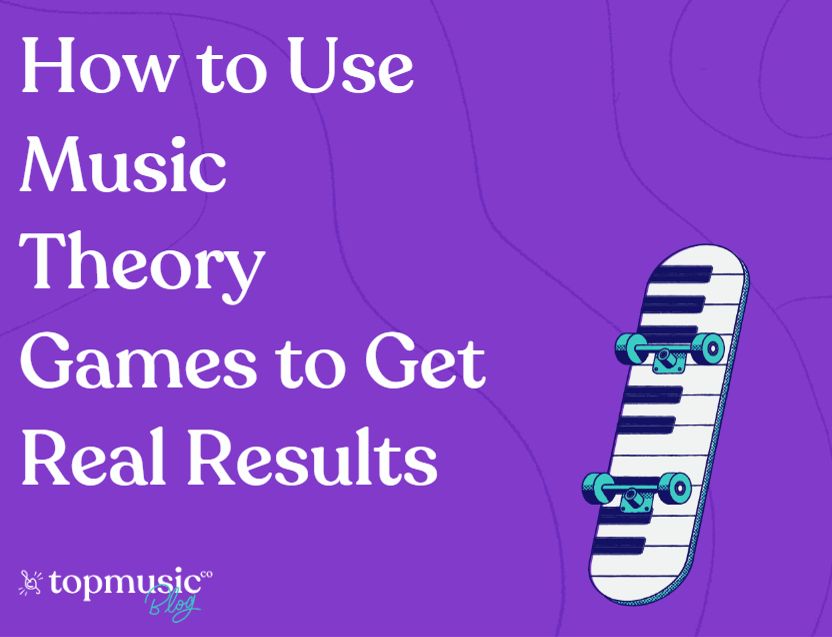Do you use music theory games in your lessons? If so, when do you use them? As a break when students get a bit wiggly? Or in a thought-out way with purpose?
Table Of Contents:
Spoiler: the main takeaway from this blog is “yes.” But let’s weigh up the pros and cons!
When the learning is fun, students learn:
However, if you’ve ever actually tried adding games to your lessons, you might have seen another side to this equation.
Music theory games also take time away from your lesson…and if you’re not careful, that won’t feel like time well spent.
“Fun” piano lessons can get a bad reputation, and they can be seen as:
But we can change that!
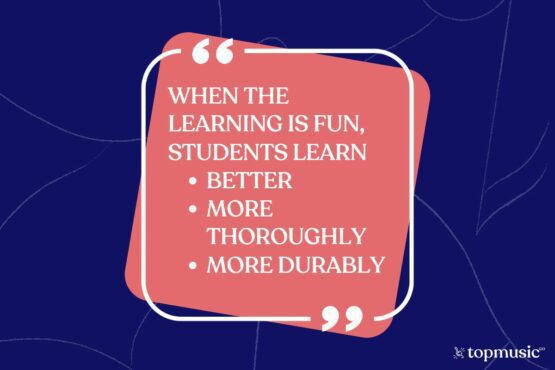
Related: Make ear training fun with these 6 games
Being a teacher who uses music theory games effectively means taking FUN very seriously.
If you love using games but have asked yourself these questions, then this process will be perfect for you.
It’s easy to not really plan games and just use anything that fits your students.
And that’s beneficial in its own way…
But we can do better.
Music games shouldn’t be there just to
Instead, you can make games a core part of how you teach.
Do you need a hand when it comes to planning your piano lesson? Check out Tim’s 3 keys to an effective lesson plan.
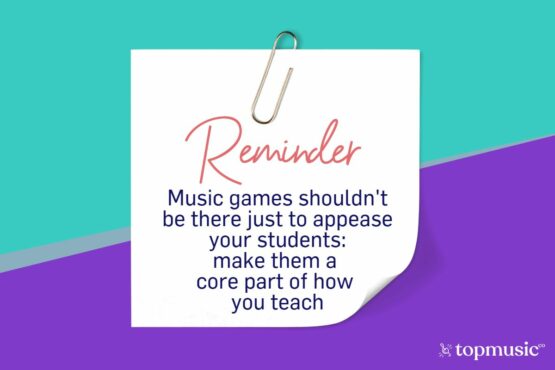
This is a big mistake that teachers make. They don’t have a specific topic they want to cover and a reason for covering that topic.
And by specific, we mean really specific. For example:
Get the idea? Music theory games can do so much more for you than just keep your student engaged.
If you know what you want them to do – they can help you actually teach.
Not of the piano…that would be a tall order.
Rather, think about the mastery of that specific concept or skill that you decided on in Step 1.
What are all the little micro-steps along the way to them truly ‘getting it’?
For Amy we probably want her to understand several different branches of the E major key signature, such as:
Breaking down the topic into smaller segments will give you so much clarity when you go to plan specific assignments and lesson activities.
Games are just one of the things that can benefit from this approach to planning. But they’re an important one – and one that teachers don’t often include in this type of thought process.
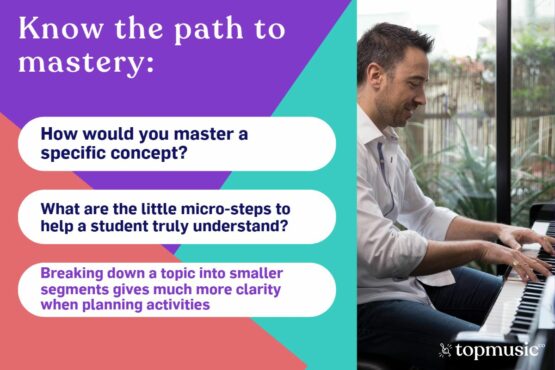
So, you have a path marked out. You know what your student needs to know and the different angles you need to take to bring them towards true understanding. What next?
Well, now it’s time to fill in the blanks.
You can take this path and use it as a framework. Start brainstorming activities you can use to guide your student toward the learning objectives.
When you evaluate an exercise or one of the many music theory games you can find online, you can easily ask yourself: “Does this move my student towards my goal for them? Will it bring them closer to understanding the concept that I’ve identified as a priority?”.
If the answer is no, move right along.
No matter how fun or interesting it looks – focus on moving the needle for your students. I promise you it will make you less overwhelmed with all the possibilities, and it will make for the best possible learning environment for each student.
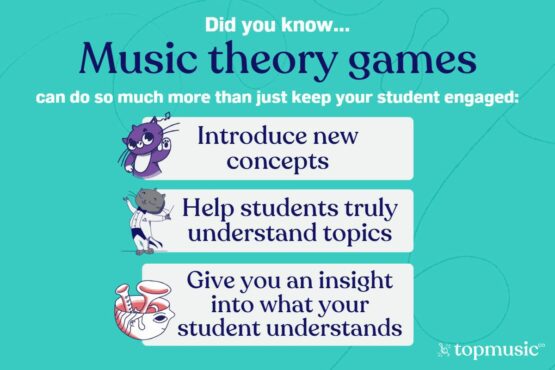
From August 1st, 2023, TopMusic is launching TopMusicGames! Every month TopMusicPro members will receive four studio-licensed music theory games from fantastic music resource creators from all over the world.
To start growing your music theory games collection, sign up to TopMusicPro (prices start at just $10 a month!)
Add a brand new music theory game into your studio today with this key signatures game!
